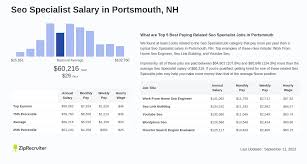Enhancing Brand Visibility: The Intersection of Public Relations and Promotion Strategies
The Role of Public Relations in Promotion Strategies
Public relations (PR) plays a crucial role in promotion strategies for businesses and organisations. While advertising focuses on paid messages to promote products or services, PR involves managing communication and relationships to build a positive image and reputation.
One key aspect of PR in promotion is media relations. PR professionals work to secure media coverage through press releases, media pitches, and building relationships with journalists. This earned media can provide valuable exposure and credibility for a brand.
Another important function of PR in promotion is crisis management. In the event of a negative situation or controversy, PR professionals step in to manage communication and minimise damage to the brand’s reputation. Through strategic messaging and transparency, PR can help rebuild trust with stakeholders.
PR also plays a role in promoting thought leadership. By positioning key executives or experts as industry leaders through speaking engagements, articles, and interviews, PR can enhance credibility and visibility for a brand.
Furthermore, PR contributes to promotional efforts through content creation. By developing compelling stories, press releases, blog posts, and social media content, PR professionals can engage audiences and generate interest in a brand.
In today’s digital age, online reputation management is another vital aspect of PR in promotion. Monitoring online conversations, responding to feedback, and engaging with audiences on social media are essential for maintaining a positive brand image.
In conclusion, public relations plays a multifaceted role in promotion strategies by managing communication, building relationships with the media, handling crises effectively, promoting thought leadership, creating engaging content, and safeguarding online reputation. By integrating PR into promotional efforts, businesses can enhance their visibility, credibility, and overall success.
Understanding Public Relations and Promotion: Answers to Common Questions
- What is sales promotion and public relations?
- What is an example of a public relations promotion?
- What does PR mean in promotions?
- How can you promote public relations?
- What type of promotion is public relations?
- What is the role of public relations in promotion?
- Is PR part of promotion?
What is sales promotion and public relations?
Sales promotion and public relations are both essential components of a comprehensive marketing strategy. Sales promotion involves the use of incentives or discounts to stimulate immediate sales of a product or service. This can include tactics such as coupons, contests, discounts, and special offers aimed at driving short-term purchasing decisions. On the other hand, public relations focuses on managing communication and relationships to build a positive image and reputation for a brand. It involves activities such as media relations, crisis management, thought leadership positioning, content creation, and online reputation management. While sales promotion aims to boost sales in the short term, public relations focuses on creating long-term relationships with stakeholders and enhancing the overall perception of a brand in the eyes of the public.
What is an example of a public relations promotion?
An example of a public relations promotion is when a company partners with a charitable organisation to raise awareness for a cause while also promoting their brand. For instance, a clothing retailer may collaborate with a local charity to donate a portion of their sales proceeds to support underprivileged children. This initiative not only showcases the company’s commitment to social responsibility but also generates positive publicity and goodwill among customers. By aligning their brand with a meaningful cause through public relations promotion, the company can enhance its reputation and build stronger connections with its target audience.
What does PR mean in promotions?
In the context of promotions, PR, which stands for public relations, plays a pivotal role in shaping and enhancing the communication strategies of businesses and organisations. PR in promotions involves managing relationships with various stakeholders, including the media, customers, employees, and the public, to create a positive image and reputation for a brand. Through strategic communication efforts such as media relations, crisis management, thought leadership positioning, content creation, and online reputation management, PR contributes to promoting products or services effectively while building trust and credibility for the brand.
How can you promote public relations?
Promoting public relations involves a strategic approach to enhancing brand visibility and reputation through effective communication tactics. To promote public relations effectively, businesses can leverage various channels such as media relations, social media platforms, community engagement, and thought leadership initiatives. By crafting compelling press releases, engaging with journalists and influencers, sharing valuable content on social media, participating in industry events, and showcasing expertise through speaking engagements, businesses can strengthen their PR efforts. Building strong relationships with stakeholders, maintaining transparency in communication, and consistently delivering key messages are also essential for promoting public relations successfully. Ultimately, a well-rounded PR strategy that integrates these elements can help businesses establish credibility, trust, and positive associations with their target audience.
What type of promotion is public relations?
Public relations is a form of promotion that focuses on managing communication and relationships to build and maintain a positive image and reputation for a brand, organisation, or individual. Unlike traditional advertising, which involves paid messages to promote products or services, public relations relies on earned media coverage through strategic storytelling, media relations, and engagement with various stakeholders. By leveraging media opportunities, thought leadership positioning, crisis management strategies, and content creation, public relations plays a crucial role in promoting credibility, trustworthiness, and visibility for entities seeking to connect with their target audiences effectively.
What is the role of public relations in promotion?
The role of public relations in promotion is pivotal in shaping and maintaining a positive image for businesses and organisations. Public relations professionals focus on managing communication effectively to build relationships with key stakeholders, including the media, customers, and the public. By leveraging strategic PR tactics such as media relations, crisis management, thought leadership positioning, content creation, and online reputation management, businesses can enhance their visibility, credibility, and reputation. Public relations acts as a bridge between the brand and its target audience, ensuring that promotional efforts are not only impactful but also resonate authentically with stakeholders.
Is PR part of promotion?
In the realm of marketing and communication, a commonly asked question is whether public relations (PR) is considered a part of promotion. While both PR and promotion share the common goal of enhancing brand visibility and reputation, they serve distinct functions within the overall marketing strategy. PR focuses on managing relationships, building credibility, and shaping public perception through earned media coverage and strategic communication efforts. On the other hand, promotion typically involves paid advertising, sales promotions, and other activities aimed at directly influencing consumer behaviour. While PR can certainly complement promotional activities by providing a strong foundation of trust and authenticity, it is important to recognise that PR and promotion are separate yet interrelated components of a comprehensive marketing strategy.




